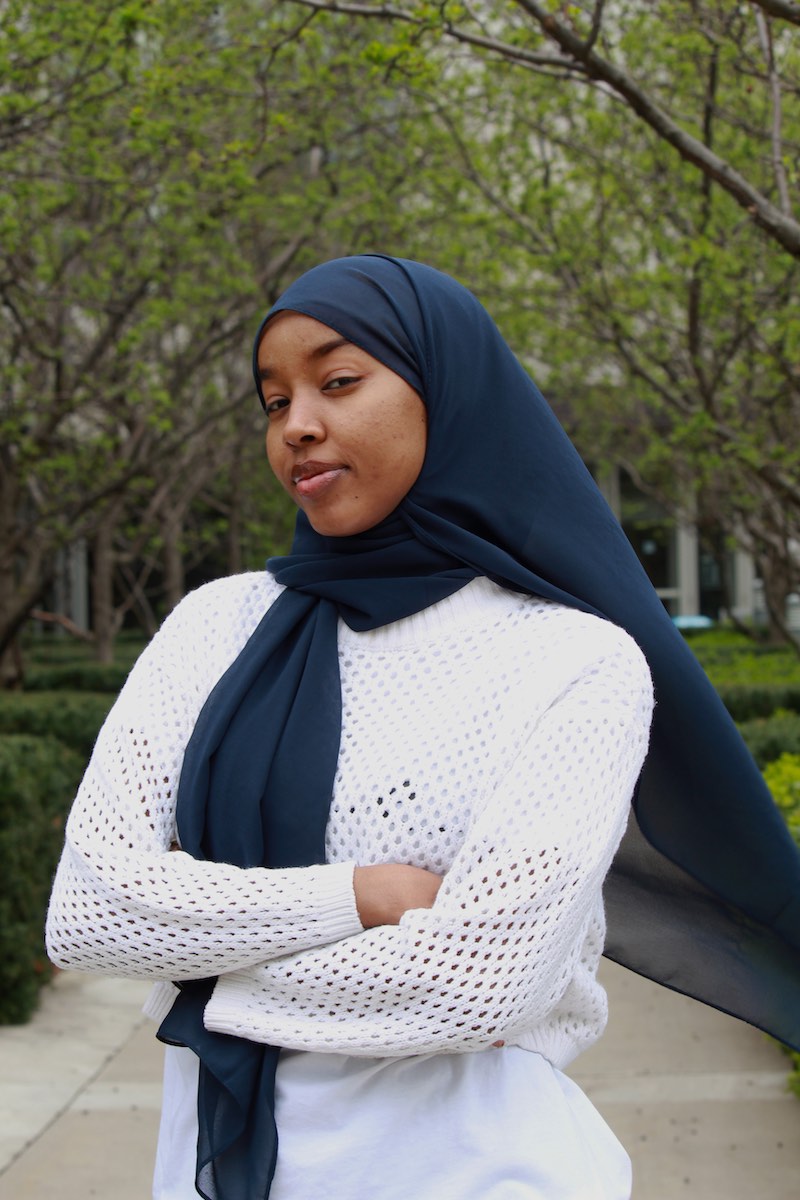
Enhancing accessibility: Transforming university life for York’s Deaf and hard of hearing community
Kafiya Noor knew York University was the right choice after hearing about its unique accessibility accommodations. An international student from Kenya, Kafiya identifies as hard of hearing and says York provided an opportunity to focus on her education while valuing her requirements.
“York stood out to me because there were a lot of students with diverse accessibility needs – I was excited to be part of a school that recognized and appreciated me for who I am,” she says through an American Sign Language (ASL) interpreter.
“Having Deaf and hard-of-hearing culture represented at school is really important, and I want that to be part of what makes York a more equitable and accessible campus,” she adds.
For Kafiya, an information technology student, she faced challenges in adjusting to a new country and Canada’s university system. Although she missed the initial transition programs that occur in the summer for incoming students, she connected with Student Accessibility Services (SAS) and registered for the Language and Learning course, which assists students with disabilities in their transition to university.
“When I got in touch with SAS, they really advocated for me and with me,” she says. “It was also a great way to make new friends – I found that really inspiring.”
Student Accessibility Services provides academic accommodations to students with temporary and permanent disabilities, including mental health conditions, physical disabilities or impairments, acquired brain injuries, neurodiversity and sensory disabilities.
Through SAS, Kafiya has been able to connect with an accessibility counsellor, coordinate with her professors about accommodations and attend events and youth programs.
Empowering others on campus
After spending time as a mentee with SAS, Kafiya was eager to become a peer mentor in her second year, providing academic support and guidance to students. She was also involved in SAS’ transition programming as a facilitator for Project ADVANCE, which provides new students with skills and resources to adjust to university life.
“This position allowed me to further contribute to York’s transition support efforts and make a positive impact for incoming students,” she says, adding that her role included organizing workshops, orientation programs, support groups and campus tours.
The opportunity to work directly with students has been fulfilling for Kafiya.
“Students who speak ASL can come and talk to me directly – they don’t need an interpreter,” she says. “This allows me to be a direct mentor to them, which is so important for making meaningful connections.”
She and another student have organized an ASL club, where they hope to bring members of York’s Deaf and hard of hearing community together.
"I want students, especially new students who have just arrived, to feel comfortable and know they can reach out to SAS, because I've been there too,” she says. “I've gone through that discomfort, and I want them to know I'm here for them."
As Kafiya pursues her degree, she is also passionate about artificial intelligence (AI) and aims to create an AI machine capable of sign language communication, driven by her commitment to accessibility and inclusion. She seeks to advance AI-driven communication tools to positively impact others’ lives, particularly those in the Deaf community who use ASL as their primary means of communication.

Connect with York University